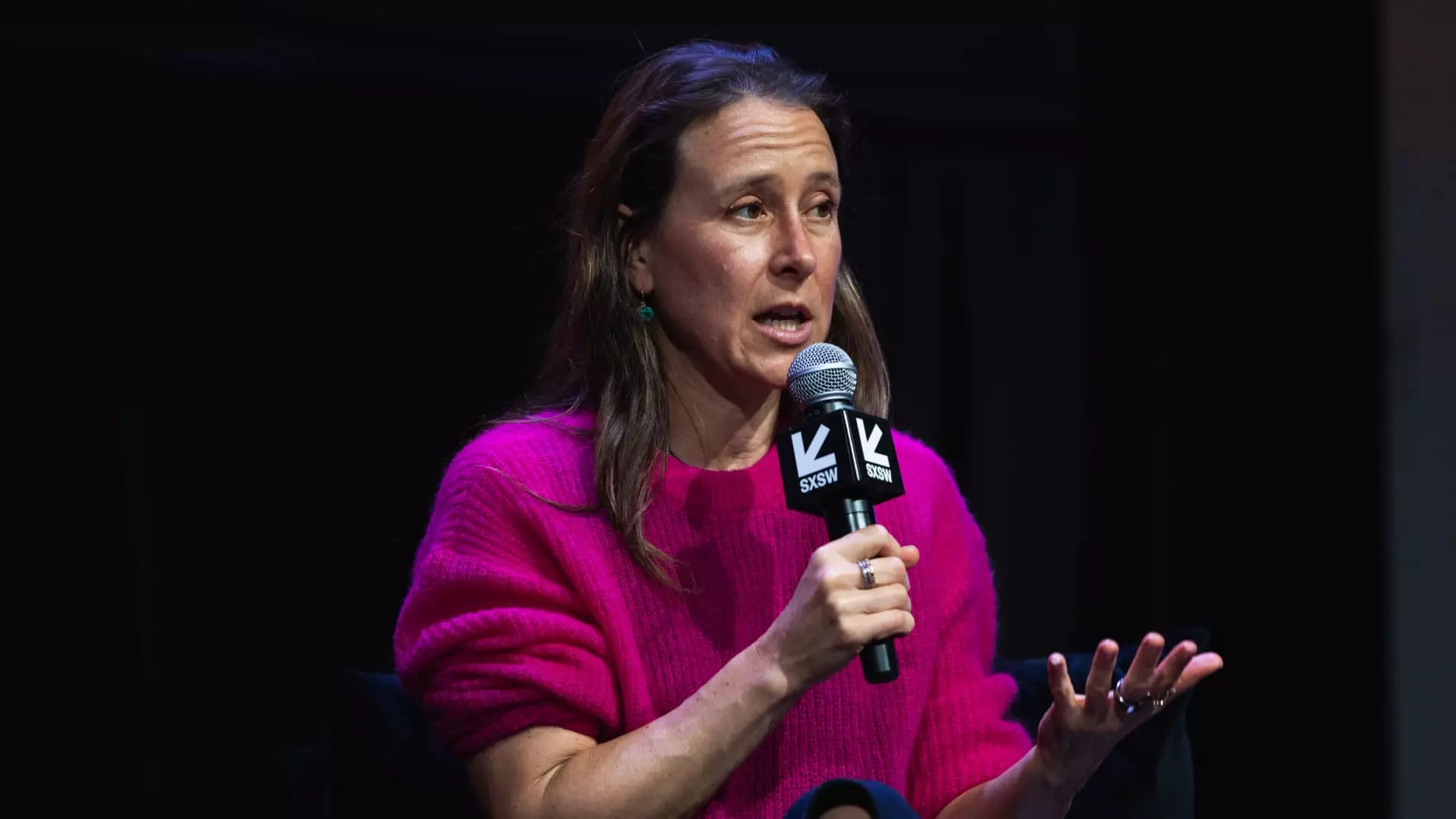The sudden bankruptcy filing of 23andMe, once hailed as a titan in the genetic testing arena, marks an extraordinary chapter in the narrative of modern entrepreneurship. The company that catapulted itself into the mainstream consciousness with its at-home DNA testing kits is now grappling with a financial landscape that resembles a cautionary tale more than a success story. Founded in 2006 by Anne Wojcicki, the firm sought to bridge scientific discovery and personal history, empowering customers with insights into their ancestry and health risks. However, the entrepreneurial journey is fraught with risks, and as the buzz fades, so do the fortunes tied to once-celebrated ventures.
Leadership Under Fire
While Wojcicki has left her position as CEO, her statement acknowledging accountability reveals a leader who understands the weight of responsibility amidst a cresting tide of challenges. Her surrender of the CEO title may signal a turning point that aims to stabilize the company during a tumultuous time. Appointing Joseph Selsavage as the interim CEO underscores a strategic shift, highlighting a need for new leadership direction as 23andMe navigates its bankruptcy proceedings.
Wojcicki’s commitment to remain on the board indicates a reluctance to sever ties with the company she co-founded. Yet, one must question if the fresh perspectives of interim leadership will be enough to revitalize investor confidence and public interest in the aging venture. The ongoing financial struggles compel one to assess whether 23andMe can reshape its identity into something akin to a phoenix rising from the ashes or if it will merely serve as a reminder that innovation does not always equal sustainability.
From Billion-Dollar Valuation to Bankruptcy
The transformation from a vibrant unicorn valued at $6 billion to a company with an estimated stock market presence of merely $25 million represents a stunning fall from grace. Various factors, including an unsustainable business model and an over-reliance on one-off DNA testing services, spotlighted the dangers of complacency even in an innovative sector. The initial public enthusiasm led to an IPO via a merger with a special purpose acquisition company (SPAC), elevating the company’s market valuation impressively but also highlighting the speculative nature of such ventures.
The impending decision to liquidate assets via Chapter 11—an option for companies to reorganize in the face of overwhelming debt—questions the long-term viability of the brand. They now must solicit bids to attract potential buyers and salvage what remains, leaving both employees and former customers in a state of uncertainty.
Privacy Issues in a Digital Age
Adding to its woes, 23andMe has recently become embroiled in serious privacy concerns. The breach involving the personal data of approximately 7 million customers introduces a layer of distrust that diminishes the customer-centric narrative that the firm once promoted. California’s Attorney General has urged consumers to reconsider their engagement with the platform, and rightfully so. In an era where data privacy is paramount, this breach raises ethical questions about the handling and storage of sensitive information.
Wojcicki’s repeated emphasis on her advocacy for customer choice and transparency, even amidst these challenges, underscores an acknowledgement of the profound implications of data privacy issues. However, whether these statements translate into action regarding actual privacy enhancements remains to be seen. It becomes apparent that consumer trust, once a driving force behind the company’s success, is now a fragile thread barely holding together its public perception.
Looking Ahead: The Path to Reinvention?
As the story of 23andMe continues to unfold, one cannot help but wonder what does the future hold? Will the company find a buyer who can reimagine its value, or will it fade into obscurity alongside many failed tech ventures? The road to reinvention is rarely linear; it demands transparency, innovation, and most importantly, a recommitment to the principles that once made it a beloved choice among consumers.
Wojcicki’s intention to pursue independent bidding hints at a desire to maintain agency over the company she co-created. It will indeed require a Herculean effort to redefine its legacy from an experimental genetic testing service to a brand that embodies trust and integrity in an unforgiving market. Only time will tell if the embers of 23andMe can be fanned back into a flame, or if its fascinating origins will serve merely as a distant memory of what once was.


Leave a Reply
You must be logged in to post a comment.